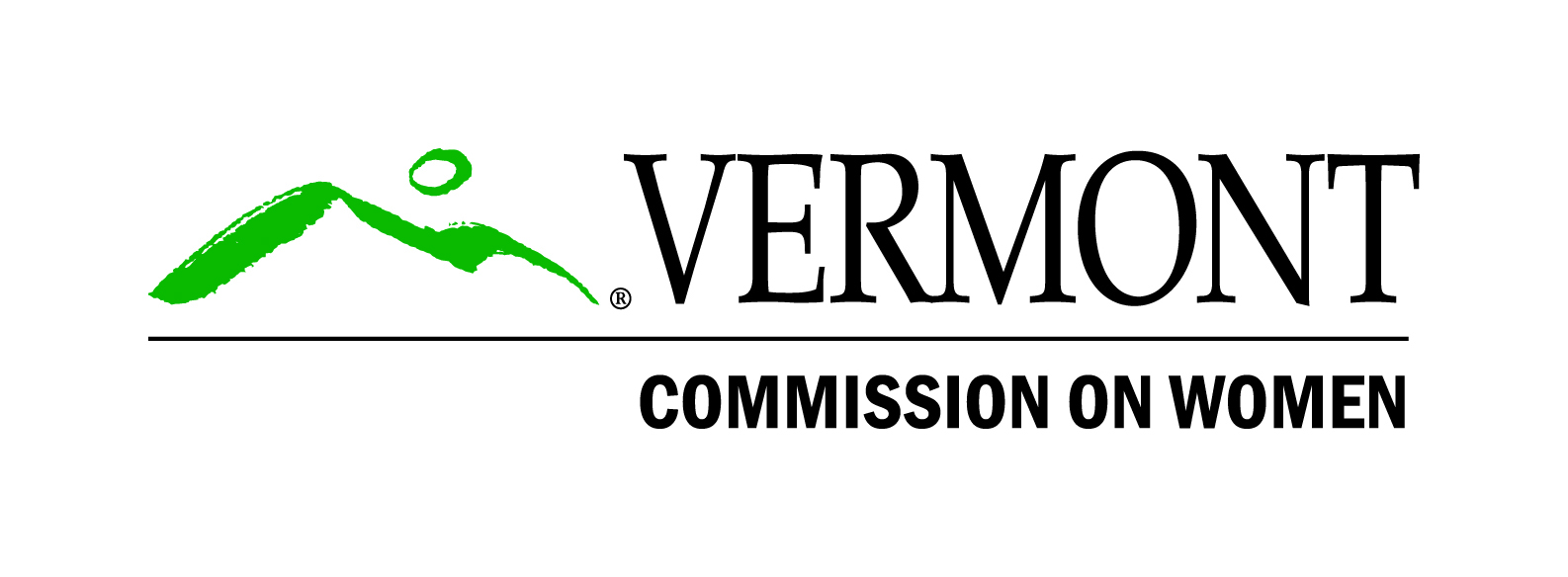The Vermont Commission on Women (VCW) is an independent non-partisan state government commission. We have a staff of 3 and are governed by 16 Commissioners and an Advisory Council of representatives of 28 organizations serving women and girls in Vermont.
The purpose of the VCW is to advance rights and opportunities for women and girls in Vermont. In furtherance of that purpose, VCW:
- conducts research and study of issues affecting the status of women in Vermont;
- advises and consults with the executive and legislative branches of State government on policies affecting the status of women in Vermont;
- educates and informs business, education, State and local governments, and the general public about the nature and scope of sex discrimination and other matters affecting the status of women in Vermont;
- serves as a liaison and clearinghouse between government, private interest groups, and the general public concerned with services for women.
Women in Vermont still face inequities in earnings, employment, safety, leadership, and many other areas. Women in Vermont earn just 84% of what men in Vermont earn. They are more likely to live in poverty, more likely to be unable to meet their basic financial needs, and more likely to be single parents. Women in Vermont continue to experience disproportionate domestic and sexual violence, and are experiencing sexual harassment at rates estimated as high as 70-80%. Women are underrepresented at the highest levels of leadership in almost every arena in Vermont, often dramatically so. Just 8 out of the top 100 companies in Vermont have CEOs who are women; just one statewide elected official is a woman; and Vermont was the last state in the country - in 2022 - to send a woman to represent it in Congress.
The Vermont Commission on Women is the only entity in Vermont that expressly considers the broad implications of state policy and budget priorities for women as they impact all aspects of women’s lives. Many of our partner organizations consider distinct pieces of that puzzle, but no other organization is attempting to address that full picture. Without our work, the state would be missing any comprehensive and cohesive work that knits together varied interests and provides the missing voices for policy and program development.
We are the only clearinghouse for data and research specifically concerning women in Vermont, providing information to support the work of legislators, advocates, the media, business, and leadership development organizations. Without our work, there would be no ready source for the full range of information that we provide.
We are the only one-stop source for information and referral for thousands of Vermont women – particularly low-income, rural woman with limited access to resources and supports – who have exhausted other resources or whose needs are so complex they don’t know where to turn. Without our work, many Vermonters would have significantly more difficulty finding the help they need.
We create and distribute publications that are unique in Vermont, providing comprehensive information on women’s legal rights. Without our work, these publications would not exist, and Vermonters would not have the ready access to this information that we now provide.
For more information, read our operating guidelines.
In 1962, President Kennedy challenged every state to create a “Governor’s Commission on the Status of Women.” These commissions would be charged with two tasks: “To encourage women to use their abilities, and to reduce discrimination against women.”*
In response, on November 23, 1964, Vermont Governor Philip Hoff established the Governor’s Commission on the Status of Women by executive order. The order directed the Commission to conduct research about “how discrimination was occurring, how women’s roles were changing, documenting the needs of working women and their children, and supporting a more active role of women in the political life of the state.”
*Learn more about the history of women's commissions in the U.S. at the National Association of Commissions for Women website.


